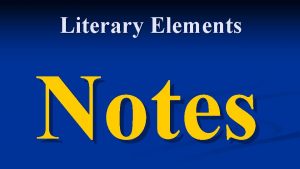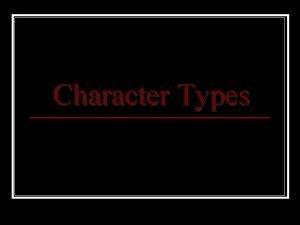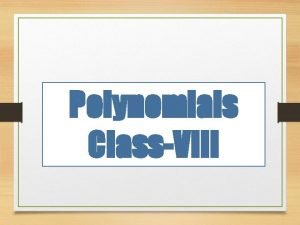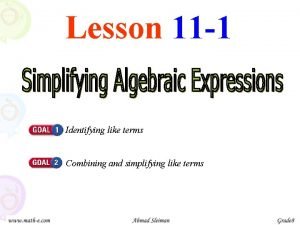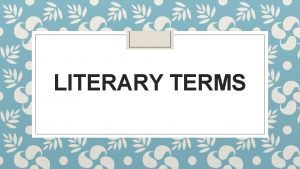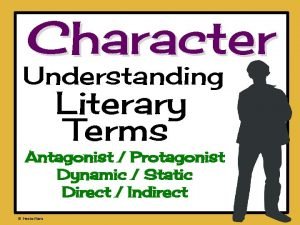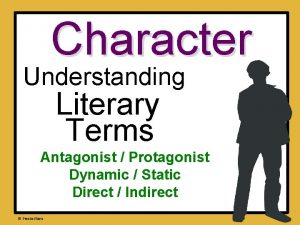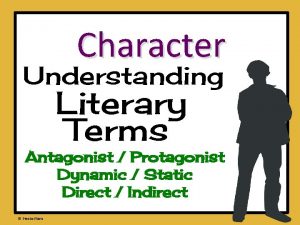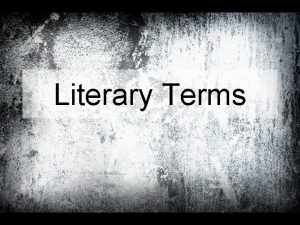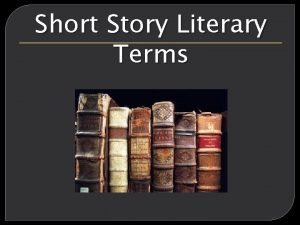Literary Terms Character Terms n Antagonist Usually the








- Slides: 8

Literary Terms

Character Terms n Antagonist - Usually the principal character in opposition to the protagonist. The “bad guy”. n Protagonist - The central character or hero in a literary work. The “good guy”. n Flat Character - Characters who are described simply or underdeveloped.

Character Terms Continued n Round Character - A character whose personality, background, motives, and other features are fully described by the author. n Dynamic Character - A character who undergoes major changes as the plot unfolds. n Static Character - A character who remains the same as the plot unfolds.

Figurative Language n n Foreshadowing - A writer’s use of hints or clues to indicate that something will occur later in the plot. Flashback - A conversation, event, or episode that happened before the beginning of the story. Symbolism - when a person, place, activity, or object stands for something else. Simile - a comparison between two things using “like” or “as”.

Figurative Language Continued n n Metaphor - a comparison of two unlike things. Hyperbole – when the truth is exaggerated for emphasis or humorous effect. Personification -human qualities are given to an object, animal, or idea. Imagery - Language that causes mental pictures or relates to the five senses

Figurative Language Continued n n Onomatopoeia - The use of words for their sound effects Tone – The overall feeling a text creates

Plot Terms n n Setting - The particular time and place in which events occur. Exposition - Introductory material that gives the background of the story (setting, characters, tone). Rising Action - Introduces complications, builds suspense, is when the plot “thickens”. Climax - turning point of the story, the moment suspense reaches its peak, it results in change for main character.

Plot Terms Continued Falling Action - occurs after the climax, resolves conflict, and ties up loose ends n Resolution - solution/outcome n Conflict--Problems or struggles between opposing forces n n n Internal- struggle that occurs within a character External- character again an outside force such as nature, another person, or a physical object
